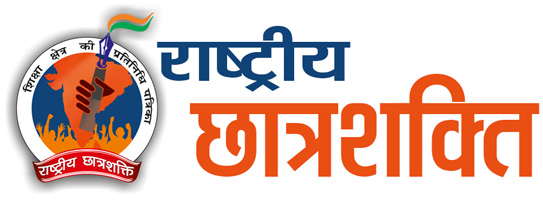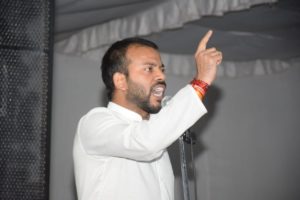“By education, I mean an all-round drawing of the best in child and man in body, mind and spirit” Mahatma Gandhi
In the embraced & inspiring leadership of India’s honorable PM Shri Narendra Modi & within the holistic backdrops of consistent hard & smart work of the Union Ministry of HRD, under architecture-ship of prominent educationist & former ISRO Chairperson also chaired the NEP Committee Dr. K. Kasturirangan, the largest democracy has done an efficient surgical strike in the education domain from policy perspective while bringing the National Educational Policy or NEP-2020.The same was pending from a long due particularly, in the diverse changes occurred in the largest democracy across tri-laterals of social, economic & politically diasporas post the last education policy came in 1986 (followed by minor amendment in 1992) as well as its locus & focus trajectories are completely deflected from the Colonial Macaulay Education Policy and moved more towards indigenous Indian path. The K. Kasturirangan committee has did a massive stakeholders consultation drive across the country before finalizing the draft of this document, that makes this policy truly democratic in spirit. This policy provides a roadmap and action dimensions for the transformation and reinvigoration of the education system in India, such that by 2040. The NEP-2020 advocates for changing the name of Union Ministry of Human Resource Development as Union Ministry of Education, as a human is not merely a resource rather the use of word ‘education’ interlink India towards its age old civilization value, while putting education at its supreme echelon.
As far as the higher educational vertical of NEP -2020 has been put into perspective, the latest policy has tried to touch upon multifaceted conundrums related to higher education in the country with largest democratic dividend. The major facets across higher education panorama to be targeted by the NEP-2020 can be briefly summarized across following tenets: i) to achieve 50 per cent Gross Enrolment Ratio by year 2035; ii) the dynamic & positive tilt towards holistic & multidisciplinary higher education characterized by flexibility of subjects, ultimately mitigating the boundary amid Science , Arts & Social Sciences; iii) Mechanism of Credit Transfer & Academic Bank of Credits targeting level playing fields for mid-course drop outs; students will be given multiple entry and exit options with appropriate certifications iv) More holistic & comprehensive Graded Autonomy across tri-laterals of academic, administrative & federal; v) Establishing of National Research Foundation inspired from American system through an act of parliament to fund peer reviewed grants and it will act as a liaison between researchers, relevant ministries and industries. vi) Regulation will be ‘light but tight’ to ensure financial probity, transparent disclosure, good governance and public spirit. Provision for single regulatory framework for higher education (except legal & medical) will avoid ambiguity & promulgate more clarity; vii) Stake of public investment in education to reach at 6 per cent of GDP at the earliest as well as private philanthropy will be promoted viii) targets upon phasing out of affiliation system in 15 years ; ix)Common norms for public as well as private higher educational institutions; x) Online Self disclosure based transparent system for approvals substituting ‘inspections’ xi) The consolidation of current 800 universities and 40,000 colleges into about 15,000 excellent institutions as per global standards will make Institutes much more well resourced and “vibrant multidisciplinary institutions” & last but not the least xii) Resource efficiencies will be targeted without any compromise on equity and quality, education is a public service and a public good not a commercial activity or a source of profit. The role of technologies involving artificial intelligence, machine learning, block chains, smart boards to be increased extensively in order to make the teaching & learning more smother. The creation of the National Educational technological forum too needs to be looked which has already been given a space in the larger tract of education specifically in the higher educational field. The future strivings Of the Government in the context of the incorporation of technology in the grand Educational project in the nation’s landscape is another feather in the cap of the forward looking and futuristic realm of the Educational firmament. In what opens new ground towards gender equality and acceptance of diversity NEP-2020 provides for a ‘Gender Inclusion Fund’ to build the nation’s capacity to provide equitable quality education for all girls as well as transgender students. Recognizing the existing disparities in the country, the policy brings focus on socially and economically disadvantaged groups (SEDGs), regions with large population of educationally disadvantaged groups will be declared Special Education Zones (SEZs). Also all scholarships and schemes will be available to students from SEDGs through single agency, students can apply through a single window system. This policy document provides a useful and holistic insight into the theme of constitutional values and ethics which inculcates self discipline and non dissent insights inside the organic system of students and education in the nation. Apart from the rights, the insight inside the Directive principles of State policy too has become the key theme of the NEP 2020. The final objective is to inculcate the larger objective of the Indic ethos and the proud traditions of the educational rampart in the nation which is amply reflected in the NEP 2020.
Thus it can be pointed out that the India centric NEP-2020 has been touched upon multiple facets, while striking upon dual dimension namely globalization (global sense in education) & globalization (foreign educational institutions can easily set up their campuses in India post de facto implementation NEP 2020, followed by turning India into a global hub of innovation & research with a more liberalized form of higher education in order to transform it into a vibrant knowledge society as well as restores its old glory of “Vishwa Guru”.
(Author is Research Scholar, Department of African Studies University of Delhi)







